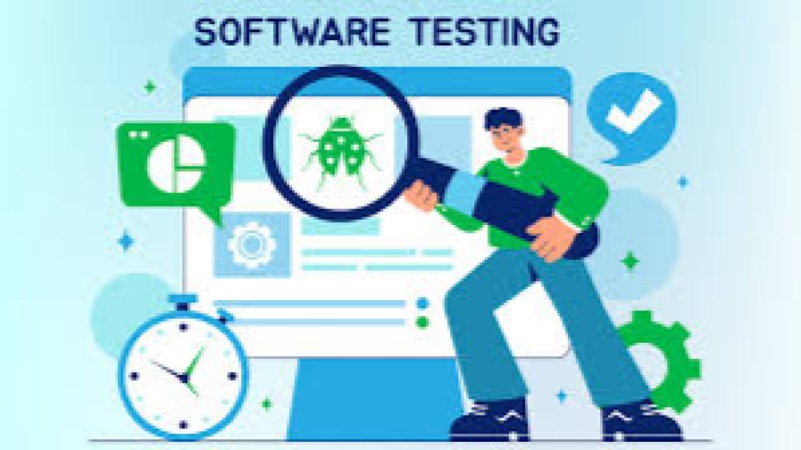Quality in an Agile Software Development Environment Training Course
Good Manufacturing Practices (GMP) in Pharmaceuticals Training Course represent the backbone of quality assurance in the pharmaceutical industry.
Skills Covered

Course Overview
Quality in an Agile Software Development Environment Training Course
Introduction
In todayΓÇÖs fast-paced digital economy, organizations must embrace agility to stay competitive and deliver customer-centric solutions. Quality in an Agile software development Environment Training Course ensures that high-performing teams achieve faster delivery, continuous improvement, and sustainable growth. This course introduces professionals to cutting-edge quality practices, integrating Agile methodologies with quality assurance, DevOps alignment, automation strategies, and customer value-driven outcomes.
The training empowers participants to understand the critical role of quality across Agile lifecycles, focusing on test-driven development, continuous integration, performance monitoring, and user experience enhancement. With real-world case studies, the program highlights industry best practices, trending tools, and collaborative frameworks that help enterprises achieve higher ROI, minimize risks, and enhance overall customer satisfaction in a dynamic software ecosystem.
Course Objectives
- Understand the fundamentals of Agile software development and its impact on quality delivery.
- Apply trending Agile quality assurance techniques in real-world projects.
- Explore the role of automation in ensuring continuous integration and delivery.
- Master test-driven and behavior-driven development approaches.
- Integrate DevOps principles with Agile quality practices for improved collaboration.
- Learn to manage technical debt while ensuring consistent code quality.
- Utilize Agile metrics and KPIs for data-driven decision-making.
- Enhance customer experience through value-driven quality management.
- Apply modern performance testing and monitoring strategies.
- Strengthen risk management and compliance in Agile projects.
- Implement continuous improvement cycles using retrospectives and feedback loops.
- Develop practical skills through case studies from leading tech organizations.
- Foster a culture of collaboration and shared ownership of quality.
Organizational Benefits
- Accelerated time-to-market with improved quality standards.
- Enhanced customer satisfaction through value-driven product delivery.
- Improved collaboration across cross-functional Agile teams.
- Reduced costs through early defect detection and automation.
- Increased ROI from Agile quality strategies.
- Strengthened brand reputation through reliable software products.
- Efficient risk management with compliance-ready practices.
- Scalable Agile frameworks that adapt to organizational growth.
- Enhanced employee skills leading to higher productivity.
- Sustainable innovation driven by continuous improvement.
Target Audiences
- Software Developers
- Quality Assurance Engineers
- Agile Project Managers
- Scrum Masters
- Product Owners
- DevOps Engineers
- Business Analysts
- IT Managers
Course Duration: 5 days
Course Modules
Module 1: Introduction to Agile and Quality Practices
- Understanding Agile principles and quality focus
- Role of quality in Agile frameworks
- Agile manifesto and continuous improvement culture
- Importance of customer-centric development
- Key Agile metrics for quality assurance
- Case study: Quality foundations in Agile transformations
Module 2: Agile Quality Assurance Techniques
- Test-driven development and its benefits
- Behavior-driven development practices
- Acceptance test-driven development overview
- Continuous testing strategies
- Automated test frameworks in Agile projects
- Case study: Applying TDD and BDD in a real-world project
Module 3: Automation in Agile Quality
- Role of automation in Agile testing
- Continuous integration and continuous delivery pipelines
- Automated regression testing approaches
- Tool selection for Agile automation
- Overcoming automation challenges
- Case study: Automation in CI/CD pipelines
Module 4: DevOps Integration for Quality
- Understanding DevOps principles in Agile
- Collaboration between QA and DevOps teams
- Infrastructure as code and quality benefits
- Continuous monitoring and feedback loops
- Improving deployment frequency with quality focus
- Case study: DevOps-enabled quality improvements
Module 5: Managing Technical Debt and Code Quality
- Definition and impact of technical debt
- Practices to reduce and manage technical debt
- Code review strategies in Agile teams
- Refactoring for continuous improvement
- Role of static code analysis
- Case study: Reducing technical debt in a large enterprise
Module 6: Agile Metrics and Quality KPIs
- Importance of measurable metrics
- Defect density and test coverage metrics
- Velocity and sprint burndown charts for quality
- Customer satisfaction as a quality measure
- Using dashboards for Agile metrics
- Case study: Leveraging KPIs for Agile quality decisions
Module 7: Customer Experience and Agile Quality
- Aligning product development with customer needs
- Measuring customer satisfaction in Agile projects
- Feedback-driven development practices
- Improving user experience through testing
- Building customer trust through quality delivery
- Case study: Enhancing customer experience via Agile QA
Module 8: Continuous Improvement and Agile Retrospectives
- Role of retrospectives in Agile teams
- Identifying improvement areas for quality
- Building a culture of continuous learning
- Effective facilitation of retrospectives
- Feedback loops for quality enhancements
- Case study: Continuous improvement in Agile organizations
Training Methodology
- Interactive instructor-led sessions
- Hands-on exercises and simulations
- Real-world case studies and group discussions
- Practical application of Agile quality tools
- Continuous assessments and feedback loops
Register as a group from 3 participants for a Discount
Send us an email: info@datastatresearch.org or call +254724527104
Certification
Upon successful completion of this training, participants will be issued with a globally- recognized certificate.
Tailor-Made Course
We also offer tailor-made courses based on your needs.
Key Notes
a. The participant must be conversant with English.
b. Upon completion of training the participant will be issued with an Authorized Training Certificate
c. Course duration is flexible and the contents can be modified to fit any number of days.
d. The course fee includes facilitation training materials, 2 coffee breaks, buffet lunch and A Certificate upon successful completion of Training.
e. One-year post-training support Consultation and Coaching provided after the course.
f. Payment should be done at least a week before commence of the training, to DATASTAT CONSULTANCY LTD account, as indicated in the invoice so as to enable us prepare better for you.